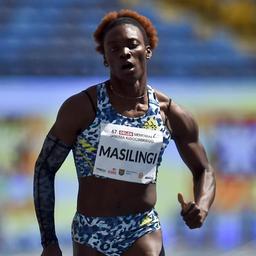
Exclusive Sportschau survey DSD and transgender rules: a patchwork in world sport
Sportschau surveyed 45 international sports federations to find out which rules apply to DSD and transgender athletes. The results show only inconsistency and a lack of unity.
The only thing clear is that nothing is clear: the rules governing the right of DSD and transgender athletes to compete are a patchwork across the world of sport. This is the result of an exclusive survey conducted by ARD among the 45 most important international sports federations – many of which, to put it mildly, treat the controversial gender issue shabbily. Twenty-four of the world federations surveyed have not implemented rules for DSD and transgender athletes that are based on scientific evidence.
This also affects sports in which the scientifically proven, hormonally induced strength advantage of DSD athletes could certainly play an important role, including canoeing, modern pentathlon and gymnastics. In most of these federations, the rule is: anyone who is a woman according to their passport is allowed to compete in the female category.
New regulations in the works
The International Olympic Committee also applied this rule to the boxing competitions at the 2024 Paris Olympics after taking over the organisation due to the suspension of the International Boxing Association (IBA). The result: heated global discussions about the DSD fighters Imane Khelif (Algeria) and Li Yu-Ting (Taiwan), who both won gold in Paris.

Olympia in Paris
DSD stands for ‘differences in sexual development’. DSD athletes are born and raised as women, while transgender athletes have consciously changed their gender identity. In response to the survey, many federations pointed out that new rules were in the works and that experts were currently being consulted on the matter. The lack of rules means that DSD athletes in these sports are not recorded at all – so it is unclear how many of them actually participate in competitive sports.
Large differences in thresholds
In total, 21 of the world governing bodies surveyed have rules that take into account scientific findings on the physical advantages of DSD and transgender female athletes. However, these rules vary greatly: in baseball, climbing, wrestling and taekwondo, the female athletes concerned must lower their testosterone level to 10 nanomoles per litre of blood. However, this still puts them well within the ‘male’ range (from around 8.5).
A further six federations allow 5 nanomoles per litre, which is still double the usual level for women. This may be less relevant for surfing and skating than for rowing, speed skating, tennis and ice hockey.
Differentiation in rowing, sailing and weightlifting
Only 11 of 45 world federations – including swimming, cycling and weightlifting – require testosterone levels at the female level (below 2.5 nanomoles per litre) and, in some cases, transformation before puberty. The latter is legally impossible in most cases. According to the survey, only three federations make a distinction between DSD and transgender athletes: rowing, sailing and weightlifting.
World Athletics, which has been dealing with the issue intensively for two decades and has already made several rule changes, is currently planning to align DSD and transgender rules. A unique female chromosome set, determined by a single cheek swab test, is to become the basic requirement for the right to compete in women's competitions. This was announced by the President of World Athletics, Sebastian Coe.

IOC wants to intervene more
Protecting the integrity of women's competitions is to be given more importance in athletics – and possibly not only there. Kirsty Coventry, elected last week to be the next President of the International Olympic Committee (IOC), has already emphasised this and indicated that she would like to see more support from other governing bodies in implementing new rules.
The next Olympic boxing tournament in Los Angeles in 2028 will be organised by the new World Boxing Association, which is currently drafting new rules for DSD athletes and plans to publish them soon. This will determine whether Imane Khelif and Li Yu-Ting will be allowed to compete again.




